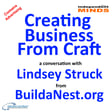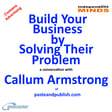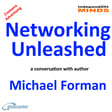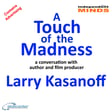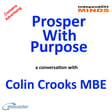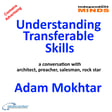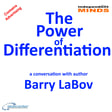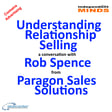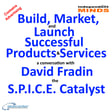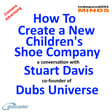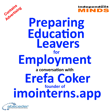
Unmanaged: Master the Magic of Creating Empowered and Happy Organizations
Jack Skeels never wanted to be a manager, but when his career inevitably led to a management role, he decided that he had to find a better way than simply following the established norms of command and control.
That eventually led to the establishment of Agencyagile a California, USA based consultancy that focuses on supporting agencies to manage people better and be more productive and profitable.
In Unmanaged, Jack advocates that it only by managing less that organisations of all kinds can create empowered and happy organisations, which in return will result in more profitable organisations.
In this episode of The Independent Minds, you will Jack Skeels explain to host Michael Millward why managers need to manage less and why that will require an element of magic.
The Independent Minds is made on Zencastr.
Zencastr is the all-in-one podcasting platform, on which you can create your podcast in one place and then distribute it to the major platforms like Spotify, Apple, and Google. It really does make creating content so easy.
If you would like to try podcasting using Zencastr visit zencastr.com/pricing and use our offer code ABECEDER.
Travel to California
Jack Skeels is based in California, USA. If you would like to visit California a good place to plan your travel is The Ultimate Travel Club. It is where you will get trade prices on travel including flights, hotels, and holidays. Use our offer code ABEC79 to receive a discount on your membership fee.
You can find out more about both Michael Millward, and Jack Skeels at abeceder.co.uk.
Three – the network
If you are listening to The Independent Minds on your smart phone, you may like to know that Three has the UK’s Fastest 5G Network with Unlimited Data, so listening on Three means you can wave goodbye to buffering.
Visit Three for more information about business and personal telecom solutions from Three. And the special offers available when you quote my referral code, WPFNUQHU.
Matchmaker.fm
If you are a podcaster looking for interesting guests or if like Jack, you have something very interesting to say Matchmaker.fm is where matches of great hosts and great guests are made. Use our offer code, MILW10 for a discount on membership.
Being a Guest
We recommend that potential guests take one of the podcasting guest training programmes available from Work Place Learning Centre.
If you have liked this episode of The Independent Minds, please give it a like and download it so that you can listen any time anywhere.
To make sure you do not miss future editions please subscribe.
Remember, the aim of all the podcasts produced by Abeceder is not to tell you what to think, but we do hope to make you think!
Thank you to you for listening.
